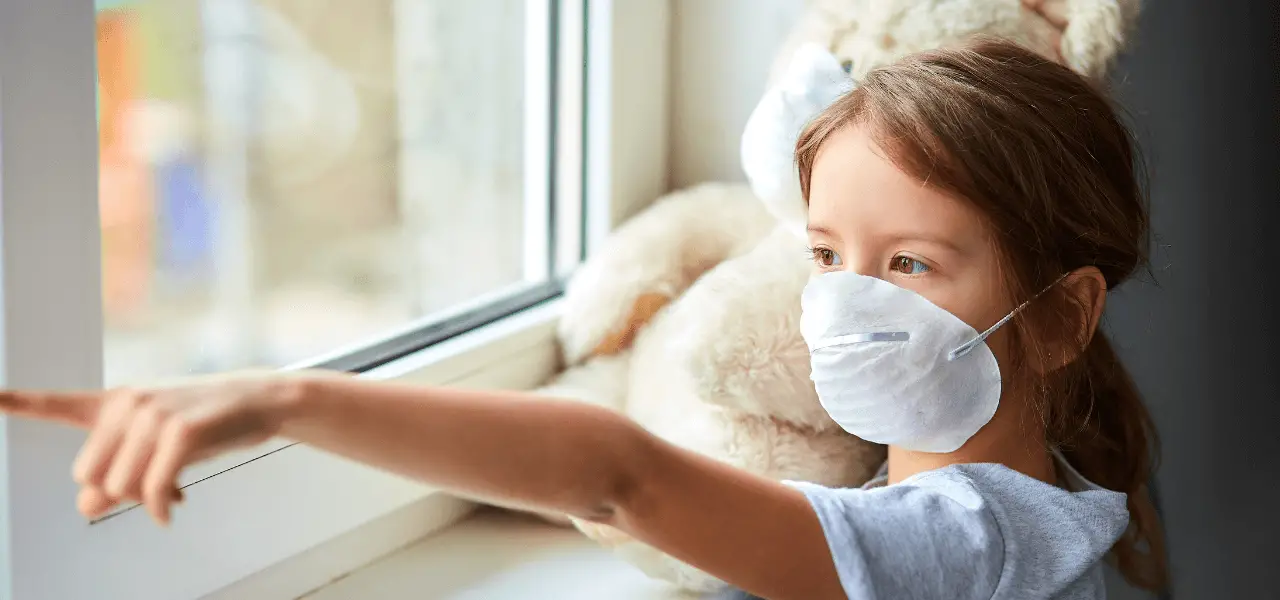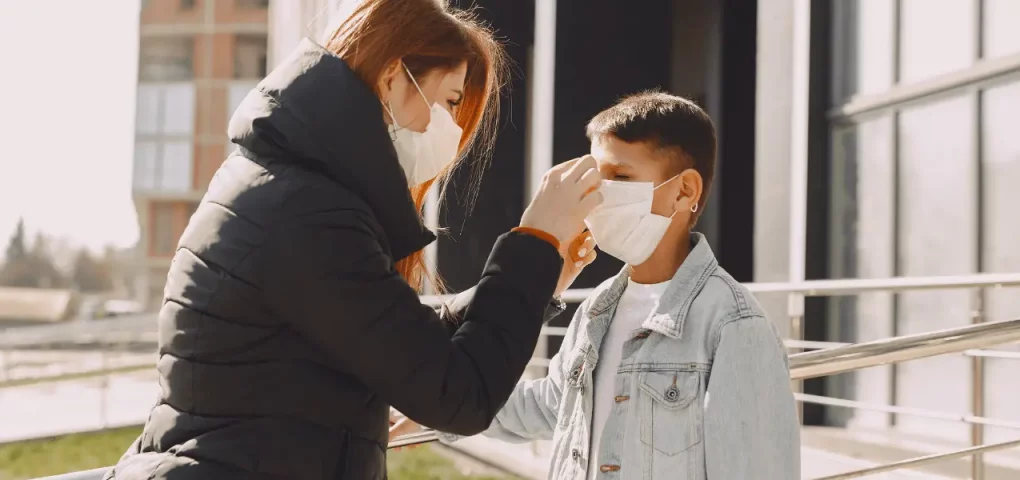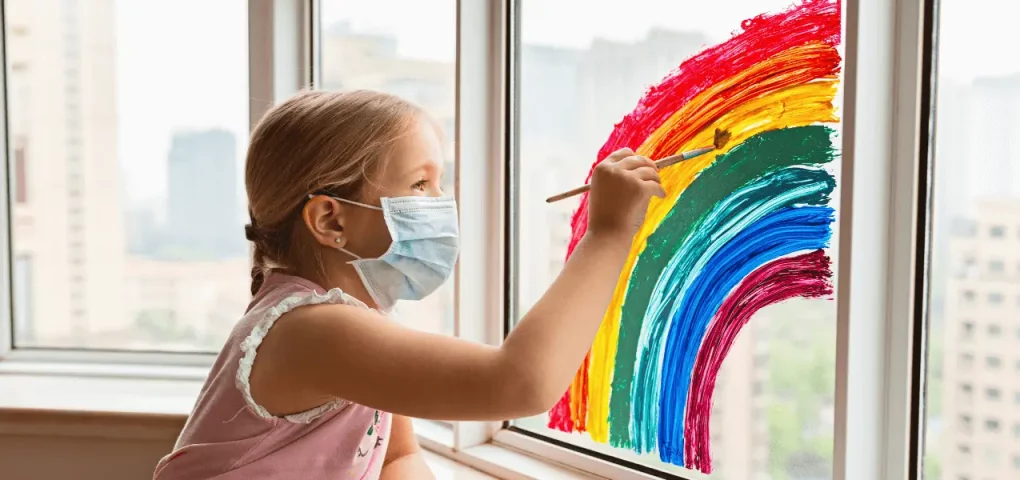
It’s been almost two years since the COVID-19 virus has surfaced. Since then, it has spread worldwide, upending our lives and putting the global economy at risk. And we’re pretty sure this whole COVID-19 crisis has started wearing you down. If that’s the case for you, then you’re not alone.
Many individuals feel the effects of pandemic fatigue, especially with all the social distancing and lockdown, which have become part of our routine and regular schedule.
As parents, you might be having a hard time helping your kids in coping with COVID-19. If there’s one thing that is undoubtedly weighing you down at this moment, it’s worrying about your kids’ safety and health. And not just physically, but also their mental, and emotional conditions as well.
As a parent, your role is to set the emotional tone of the family during this time. How you respond to this challenging time determines how well your family will handle the situation.
We understand that things are just too stressful at the moment. But remember, learning how to be calm will help young children and other family members do the same.
But how can you help your family successfully deal with the current crisis without sacrificing everyone’s mental health?
In this post, we will look at the different ways you can inform, reassure, and keep them safe by helping children cope with the pandemic.
7 Tips on How You Can Help Your Kids in Coping with Covid-19
1. Ask them questions and listen
The best way to know your children’s condition is to let them talk about how they’re feeling.
If you find it awkward to ask your child, you can start by telling them the world is in a tricky situation. Get a sense of their perspective by finding out how much they know and following their lead.
Older children and teens might probably understand better than most children and ask questions. As parents and caregivers, it’s important to explain it to them in a way that will not increase fear and anxiety.
If they’re still too young to be aware, you probably don’t need to raise the issue. Instead, you can take this chance to explain the importance of practicing good hygiene without having to cause alarm.
The importance of safe space
Make sure that you are talking in a safe space, allowing your child to speak freely. You can use stories, drawings, videos, or any fun activities to open up a discussion.
What matters is that you acknowledge their concerns and feelings. Let them know that it’s normal to have fear and feel afraid. Show that they have your full attention by listening and assuring they can talk to you anytime.
2. Be honest with your child
Regardless of their age, your children have every right to truthful and honest information, especially about their surroundings. But as parents, it is our job to make sure that such information does not increase fear or cause traumatic stress to our children, especially if they’re at an age where they might not be able to handle the stress and anxiety.
Do your best to use age-appropriate language when revealing information to your child. Watch out for their behavior. Be sensitive to any signs of anxiety and stress on their behalf.
We all know little kids love to play. If they have questions that you can’t answer, you can go ahead and look for answers together and turn them into learning activities or family activities.
Filter wrong information/misinformation, especially in younger children
Let your kids know that not all information they see and hear from adults is accurate. Helping kids understand the importance of accurate information also teaches them to be responsible at an early age. Make it a routine to correct any false information they have.
Keep yourself updated with the most recent COVID-19 information by checking out the Centers for Disease Control and Prevention.
3. Show them how to protect themselves and their friends

It’s not just enough to let your children know about what they should do; you need to show them how to do it too. Remember, your kids consider you their role model. Whatever you do, your children will mostly follow suit, so it’s essential to set an example for your children.
Whether it’s making sure that you wash your hands regularly or coughing into your elbows, what you do can impact the way your child deals with the COVID-19 situation.
Focus on helping your child understand its importance and make it a part of their daily routine. Teach young children these tips to stay safe and healthy.
And please, don’t forget to tell them to keep their distance if their friends are sick—feeling feverish, coughing, or having difficulty breathing. It’s vital that they exercise caution as well to not get sick.
4. Teach your child how to distance physically but not socially
Sure, we all have to protect ourselves by practicing social distancing, but that doesn’t mean we can’t stay connected with our family, friends, and loved ones.
Encourage your child to engage with their peers. Technology makes this easy through video chats, phone calls, emails, or texts. Along with other parents and caregivers, you can schedule video calls with them and let your kids play.
Teens and young adults can probably manage independently, but show support and encourage them that talking to their peers can create a healthy support system.
Teach them how to reach out to friends when they have a bad day, or check on them and see how they are doing.
5. Assure them that it’s okay to not be okay
As parents, it’s difficult for us to see our children sad. And that’s normal. But we also have to understand that it’s okay for our kids to feel sad about the situation too.
If tears are the only way to release their stress, don’t stop them from crying. Give them enough space to express their feelings while making them feel your support.
6. Help them manage their time

Get your kids and teens to redirect their time (and efforts) to a new hobby or activity, like crafts or playing board games. Enroll them in online classes to learn new skills.
Take advantage of the fact that you’re staying at home, which means more family time for everyone.
7. Take good care of yourself
The simple act of taking care of yourself can help your kids a lot in coping with Covid-19.
Remember, if we want to take care of our kids better, we have to take care of ourselves first. There’s no other way around it. So be aware of your state of mind and emotions about Covid-19 before talking to your kids.
That doesn’t mean that you always have to be cheerful, but if you stay relaxed despite everything that’s going on, your kids will most likely do the same.
Think clearly. Find your own calm so they can find theirs. Be a good example.
A Final Note
We all have our limits on what we can tolerate, and things that are just beyond our emotional capacity.
Just because we are okay does not necessarily mean our children are too. Make a conscious effort to reach out to your kids and loved ones. Keep in mind that young children have lower tolerance levels, so we need to keep them safe from information that can stress them out.
By helping your kids in coping with COVID-19, they will be able to handle it in a way that keeps them healthy and safe—physically, mentally, and emotionally.
———-
Enjoyed this article? Please share it with the other mommas out there too! And don’t forget to check out our other posts on the blog.


Leave a Reply